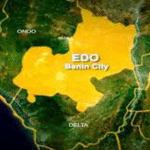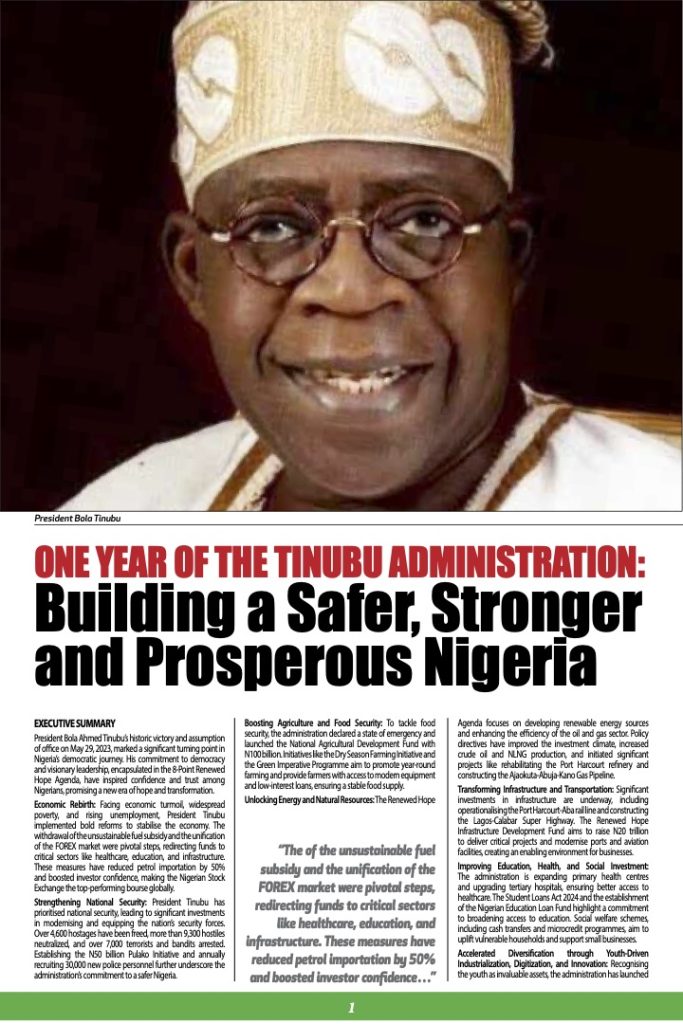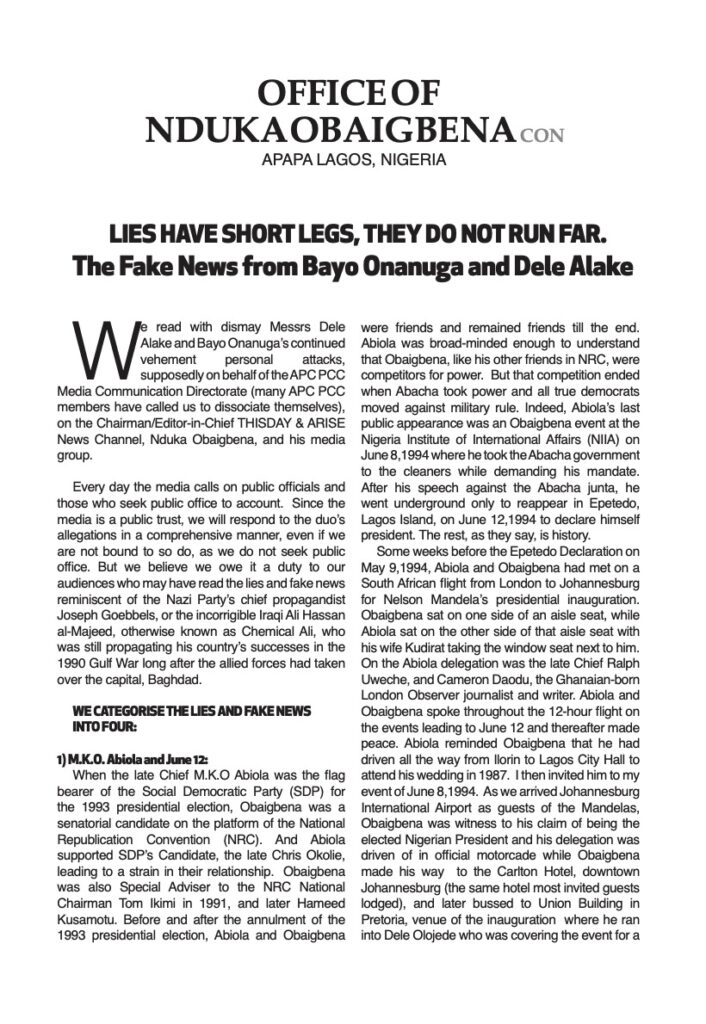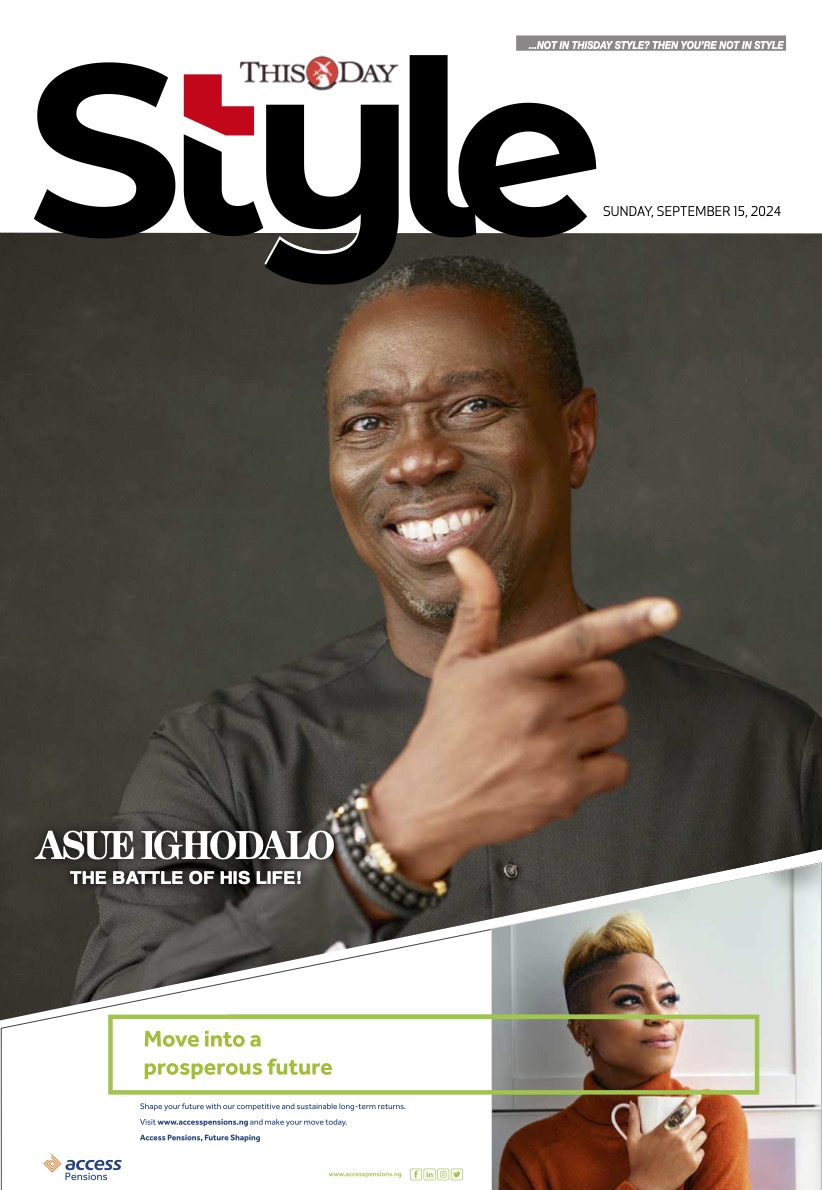Latest Headlines
Danger of Demonising the EFCC

It’s about time Nigerians began to see the fight against corruption as national imperative and stop demonising the Economic and Financial Crimes Commission, Shola Oyeyipo writes.
Some discerning Nigerians have an understandably deep-seated misconception and misgiving about the Economic and Financial Crimes Commission (EFCC). This is not without concrete reasons.
An anti-corruption agency established to combat economic and financial crimes, some of its former helmsmen were controversially removed from office due to allegations of, ironically, graft. This has markedly engendered and entrenched a stark decline in trust and regard for the agency.
Indeed, the EFCC has an uncanny history of insider corruption whereby its bosses, otherwise the watchdogs, became hounded men for varying degrees of financial malfeasances.
The first and only woman to head the agency, Farida Waziri, was appointed in 2008 by the late President Umaru Musa Yar’Adua.
However, her tenure was dogged by startling allegations of attempting to dismiss cases of corrupt individuals and failing to secure convictions for high-profile cases involving former governors already instituted by her predecessor.
She was sacked by President Goodluck Jonathan in November 2011, citing national interest as the reason for her dismissal.
Waziri was succeeded by Ibrahim Lamorde, who sadly died in May, 2024 after a brief illness. He was 62 years old. A retired Deputy Inspector-General of Police, Lamorde served as the third substantive chairman of the EFCC between 2012 and 2015.
A few months before his fourth anniversary in office, Lamorde was asked by former President MuhammaduBuhari to proceed on terminal leave.
At the time, the Senate Committee on Ethics, Privileges and Public petitions was investigating a petition written by one Mr. George Uboh, alleging that Lamorde diverted the sum of N1 trillion being stolen money recovered from a former Governor of Bayelsa State, DiepreyeAlamieyeseigha, and former Inspector-General of Police, TafaBalogun.
The heist reportedly occurred when Lamorde served as the pioneer director of operations of the agency between 2003 and 2007, and when he was acting chairman of the commission in 2008. Alas, nothing came out of the petition until Lamorde passed.
Similarly, Lamorde’s successor, Ibrahim Magu, appointed in an acting capacity, left under a mottled cloud of corruption allegations. However, the Senate refused to confirm him, citing unfavourable security reports.
When he returned for his confirmation hearing in 2017, the senate once again rejected his nomination as the substantive chairman of the EFCC after the Department of Security Service (DSS) reaffirmed its position that he lacked integrity to lead the country’s anti-corruption agency.
But he remained in office at the behest of President Buhari and without parliamentary approval for five years. In July 2020, Magu was suspended from office because of a groundswell of corruption allegations.
The DSS report that nailed him stated, among others that, “The Police Service Commission found Magu guilty of action prejudicial to state security – withholding of EFCC files, sabotage, unauthorised removal of EFCC files, and acts unbecoming of a police officer and awarded him severe reprimand as punishment.” He was subsequently arrested and suspended from office.
Until his appointment to replace Magu, AbdulrasheedBawa was zonal head of the Lagos office of EFCC, and he had no formal police training, making him the first non-policeman to chair the EFCC and the youngest.
Bawa, then 40 years old, was appointed substantive chairman in February 2021. Like his predecessor, Bawa’s tumultuous reign culminated in his indefinite suspension by President Bola Tinubu in June, 2023 and subsequent arrest by the DSS for alleged financial improprieties and gross abuse of office. He was released after four months in custody.
The foregoing underscores the revolving door nature of how EFCC bosses leave office except for its pioneer chairman, NuhuRibadu, whose controversial removal from office was not based on corruption allegations.
It does bear asserting that no matter how pious, every EFCC boss is a marked man. Safe to say that there is sustained, concerted, and well-oiled machinery by corrupt elements to bring EFCC bosses to an ignominious end.
Like Magu said when he was absolved of all allegations, “I am a victim of corruption fighting back, but I am happy that recent events are revealing the truth to Nigerians.”
Therefore, the fight against corruption, especially as deep-seated as Nigeria’s, is a national security imperative. It is not a fight that would be left to the agency in charge alone.
During the release of a policy memo against corruption in 2021, United States President Joe Biden, said, “Fighting corruption is not just good governance. It is self-defence. It is patriotism, and it’s essential to the preservation of our democracy and our future.
“Corruption eats away at the foundations of democratic societies. It makes the government less effective, wastes public resources, and exacerbates inequalities in access to services, making it harder for families to provide for their loved ones.
“Corruption attacks the foundations of democratic institutions, drives and intensifies extremism, and makes it easier for authoritarian regimes to corrode democratic governance.”
Biden elaborated on the need for collaborations by all and sundry and directed “departments and agencies to make recommendations that will significantly bolster the ability of the U.S. government to combat corruption…
“The United States will lead by example and in partnership with allies, civil society, and the private sector to fight the scourge of corruption.”
If the American president could call on the civil society and private sector to join the government in fighting corruption, it behoves the Nigerian government to also call every Nigerian, whether in Langtang or Lagos, Aba or Abeokuta and everywhere in between to support the agency in achieving its mandate.
Instructively, the executive chairman of the commission, Ola Olukoyede, while outlining his agenda upon assumption of office in October, 2023, said he came with three objectives: focus on the mandate of the EFCC, pursuit of transparency and accountability, and building the image of Nigeria.
To achieve these, he called for collective responsibility and greater emphasis on preventive frameworks against graft.
He said, “We need to get to a point in Nigeria where we come together on the same page and believe that corruption is a cankerworm to our development. We must also create an atmosphere of transparency and accountability. And we must help as an anti-corruption agency to build the image of Nigeria.”
Thus, whether Nigerians love to hate the EFCC or not; or do not trust it because of its chequered past, they cannot turn a blind eye to its anti-graft efforts and activities.
There will always be pushback from corrupt elements. It is Nigerians’ responsibility, not just the agency’s, to see through the veneer of untruths and blackmail and come together to fight a common existential enemy.

















